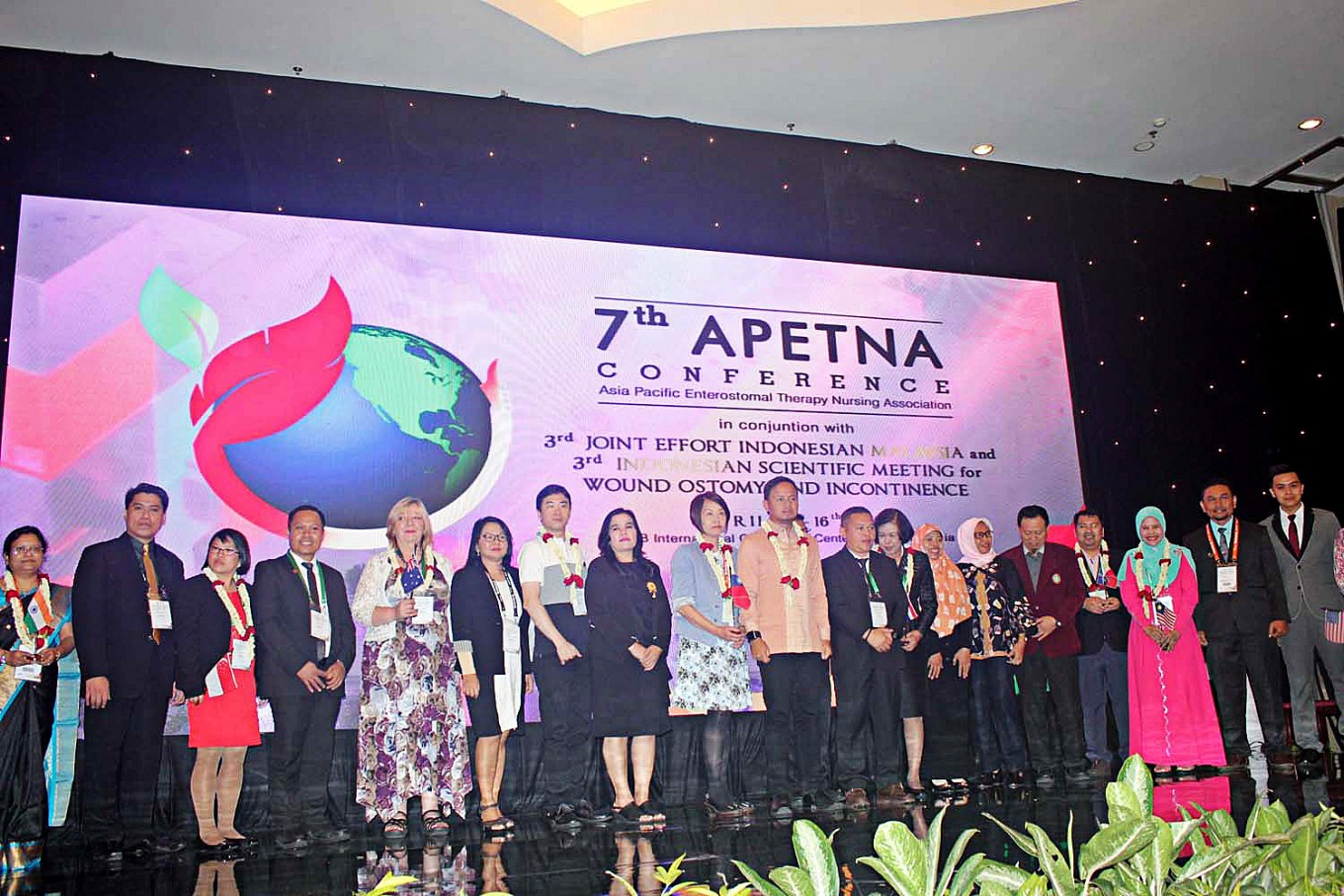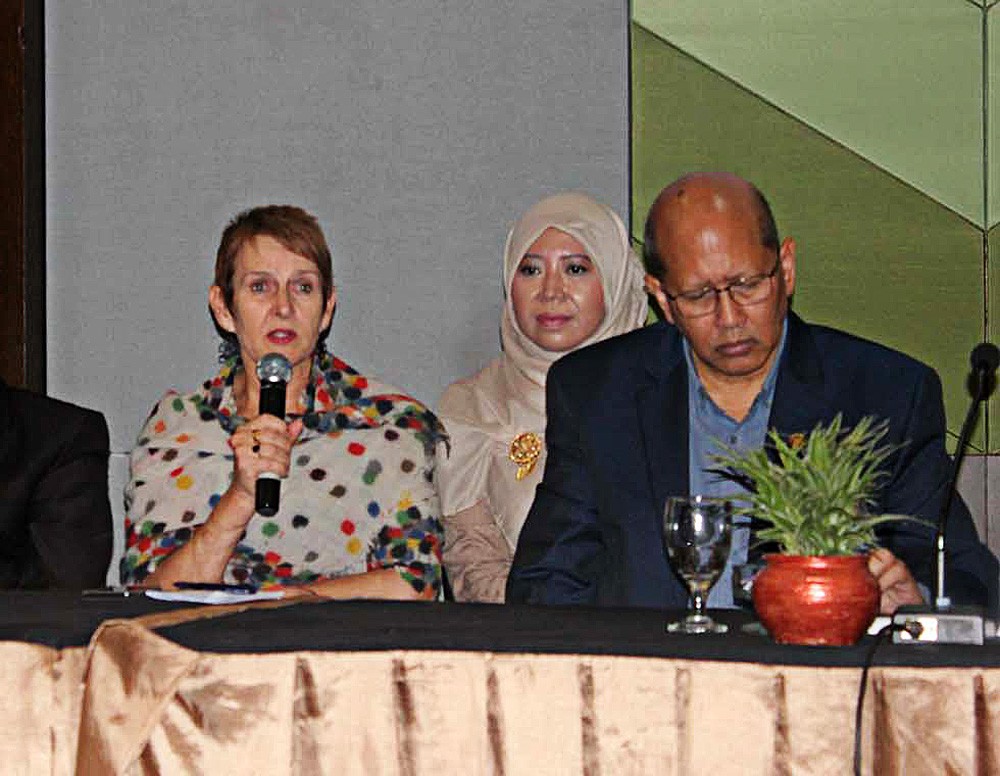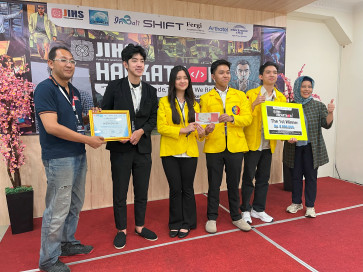Lack of enterostomal therapists hurts patients in parts of Indonesia
Change text size
Gift Premium Articles
to Anyone
 Closer cooperation: Representatives of Asia Pacific Enterostomal Therapy Nurse Association (APETNA) member countries take a picture with Bogor Mayor Bima Arya (center) after a two-day conference in Bogor, West Java, that ended on Saturday. (JP/Theresia Sufa)
Closer cooperation: Representatives of Asia Pacific Enterostomal Therapy Nurse Association (APETNA) member countries take a picture with Bogor Mayor Bima Arya (center) after a two-day conference in Bogor, West Java, that ended on Saturday. (JP/Theresia Sufa)
T
he unbalanced distribution of nurses experienced in handling wounds, stoma and incontinence in Indonesia hampers the treatment of people with those medical problems, experts have said.
Asia Pacific Enterostomal Therapy Nurse Association (APETNA) president Widasari Sri Gitarja said Indonesia had around 8,000 wound, ostomy and continence (WOC) nurses. However, she added, they were not evenly distributed across the country, while in fact each hospital must have at least two or three nurses with those skills.
“Geographical challenges have hampered the distribution of WOC nurses, whereas wound treatment has become a priority in the national health program,” said Widasari during a two-day APETNA conference at Botani Square in Bogor, West Java, which ended on Saturday.
WOC nurses are those who have an Enterostomal Therapy Nurse (ETN) certificate. People needing enterostomal care include patients who suffer from diabetes mellitus with chronic wounds and clients who have a wet, irritated and painful stoma. Patients with bladder control problems and clients who seek foot and skin treatment also need enterostomal therapy.

Under the ‘stop amputations’ slogan, enterostomal therapists from Asia Pacific countries highlighted the importance of early wound treatment to prevent amputations and the need for closer cooperation with other health workers.
As many as 658 WOC nurses from 16 countries attended the conference. They included Australia, Hong Kong, India, Indonesia, Malaysia, Singapore, South Korea, Thailand, the Philippines and the US.
“We still need extra health workers to fulfill our need for wound, ostomy and continence nurses. We have developed a network to meet the demand,” said Asrizal from the APETNA Conference organizing committee. (ebf)









